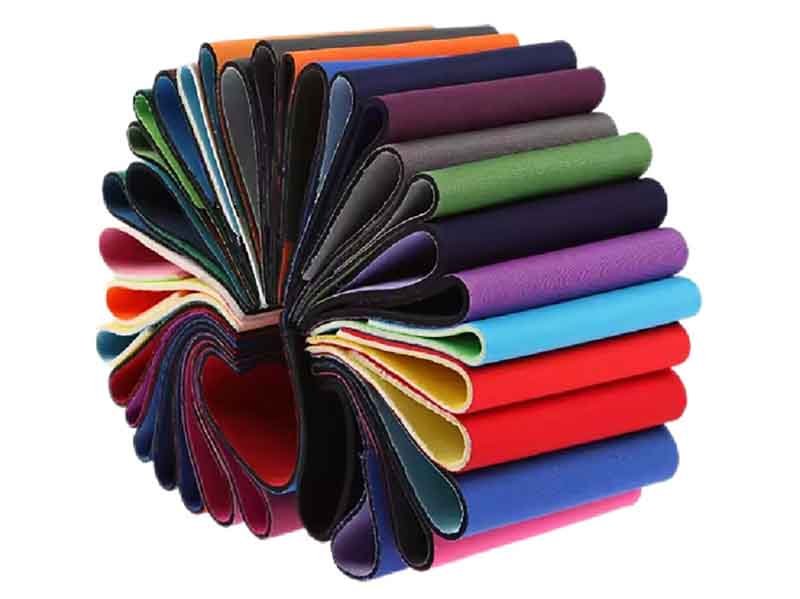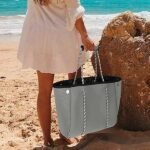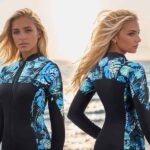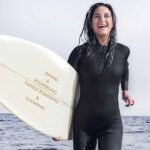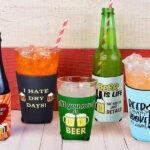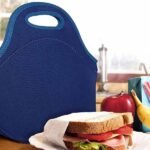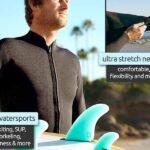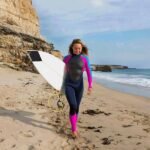Neoprene has quietly become one of the most indispensable materials in modern consumer and industrial products. From wetsuits that keep surfers warm in icy waters to custom neoprene bags that protect laptops and cameras, this synthetic rubber has a unique combination of durability, flexibility, and resistance to water, oil, and chemicals. As global demand for outdoor gear, lifestyle accessories, and sustainable alternatives grows, the question arises: who are the best neoprene manufacturers to partner with in 2025 and beyond?
The 10 best neoprene manufacturers include global leaders like Sheico Group, Denka Company Limited, Zenith Rubber, BGK GmbH, Eastex Products, Macro International, Techneopro, EKI BV, Phelps Industrial Products, and Szoneier in China. These companies excel in producing high-quality neoprene materials and OEM/ODM finished products, offering customization, sampling, sustainability options, and reliable supply chains for brands worldwide.
Choosing a manufacturer isn’t just about price—it’s about reliability, flexibility, and long-term partnership. Some dominate raw material supply, others lead OEM wetsuit and bag production, and a select few specialize in customized private-label solutions with low MOQs. In this article, we’ll explore the top 10 neoprene manufacturers, compare their strengths, and help you evaluate which partner aligns best with your brand’s goals. By the end, you’ll know exactly why companies like Szoneier stand out as the go-to OEM partner for brands seeking quality, flexibility, and fast delivery.
What Criteria Define the “Best” Neoprene Manufacturers?
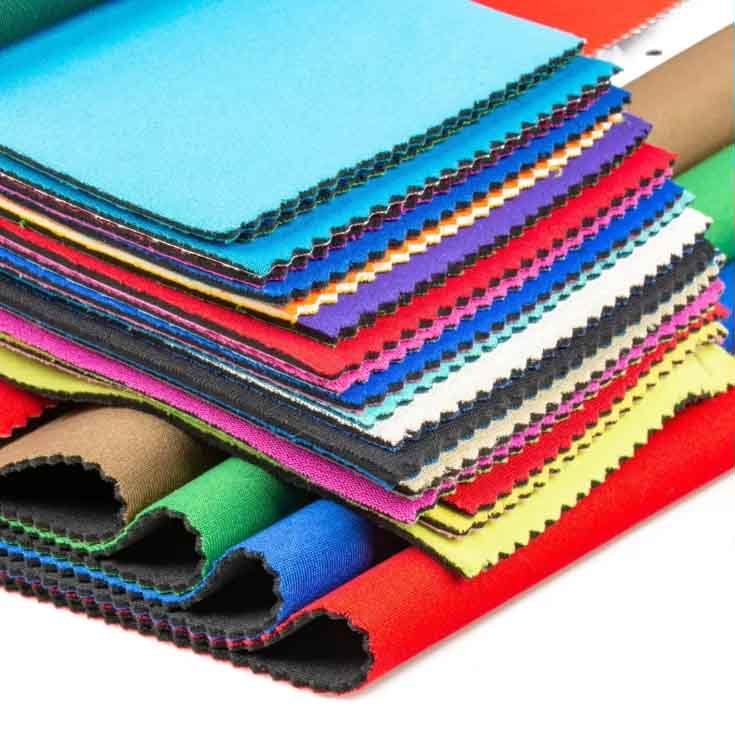
The best neoprene manufacturers combine consistent quality, innovation, customization services, certifications, sustainable practices, and flexible MOQs. They don’t just sell material—they provide technical expertise, rapid prototyping, and reliable delivery that brands can scale with.
When buyers search for the “best” neoprene manufacturers, they are rarely just looking for raw fabric. Instead, they’re seeking an integrated partner—a company that can understand product requirements, provide technical advice, and deliver high-quality goods on time. Several criteria separate top-tier manufacturers from average suppliers.
- Quality Assurance: Top manufacturers hold certifications such as ISO9001 for quality systems, ISO14001 for environmental management, and OEKO-TEX® Standard 100 for safe materials. For B2B buyers, these aren’t just badges; they’re a guarantee of consistency and compliance with international standards.
- Customization & OEM/ODM: Leading neoprene manufacturers like Szoneier go beyond standard catalog items. They offer OEM (Original Equipment Manufacturing) and ODM (Original Design Manufacturing) services, allowing brands to launch unique products with logos, patterns, and designs tailored to their market.
- Flexibility on MOQ (Minimum Order Quantity): Smaller brands or startups often struggle with high MOQs. The best factories provide low MOQ solutions without compromising quality—enabling businesses to test markets with minimal risk.
- Lead Times & Responsiveness: Global buyers need reliable timelines. A factory that offers rapid prototyping (samples within days) and short production lead times provides a major competitive edge.
- Sustainability Efforts: With growing environmental scrutiny, buyers now ask: Is neoprene eco-friendly? Traditional chloroprene has issues, so many top manufacturers are experimenting with limestone-based neoprene or bio-rubber alternatives like Yulex®. Brands that adopt eco-friendly sourcing attract more customers.
In short, the best neoprene manufacturers combine technical expertise, supply chain reliability, and customer-first service.
Which Companies are Considered the Top Neoprene Manufacturers Globally?
The top neoprene manufacturers worldwide include Denka Company Limited (Japan), Zenith Rubber (India), BGK GmbH ENDLOSBAND (Germany), Sheico Group (Taiwan/Asia), Eastex Products (USA), Macro International (USA), Techneopro (UK), EKI BV (Netherlands), Phelps Industrial Products (USA), and Szoneier (China). These companies lead in either raw neoprene production or OEM/ODM finished goods, supplying markets from wetsuits and sportswear to industrial gaskets, medical devices, and consumer products.
Global neoprene manufacturing is split between raw material producers (companies that synthesize chloroprene and create neoprene sheets/foams) and OEM/ODM converters (factories that design, cut, laminate, and assemble neoprene into finished goods like wetsuits, bags, gloves, or industrial seals). Understanding both sides of the supply chain helps brands choose the right partner.
1. Denka Company Limited (Japan)
- Specialty: One of the original inventors of polychloroprene (DuPont licensed to Denka decades ago).
- Strength: Global leader in high-performance chloroprene rubber.
- Markets Served: Automotive hoses, industrial seals, conveyor belts, protective gear.
- Why Important: Denka’s neoprene is considered the global benchmark for consistency and technical performance.
2. Zenith Rubber (India)
- Specialty: Technical rubber and neoprene sheets.
- Strength: Exports to 40+ countries with strong presence in construction, defense, and marine industries.
- Markets Served: Neoprene sheets for industrial and protective use.
- Why Important: Known as a cost-effective alternative to Japanese/European suppliers with large-scale capacity.
3. BGK GmbH ENDLOSBAND (Germany)
- Specialty: Continuous neoprene belts, sheets, and industrial applications.
- Strength: Strong European innovation hub for neoprene rubber.
- Markets Served: Automotive, aerospace, energy, industrial equipment.
- Why Important: Trusted in Europe for technical neoprene components.
4. Sheico Group (Taiwan China/Asia)
- Specialty: The world’s largest wetsuit manufacturer, vertically integrated.
- Strength: Holds ~65% of the global wetsuit market share.
- Markets Served: Surfing, diving, triathlon, outdoor apparel.
- Clients: Billabong, Patagonia, ScubaPro, Quiksilver.
- Why Important: Supplies most global surf and dive brands, often behind the scenes.
5. Eastex Products, Inc. (USA)
- Specialty: Laminated neoprene fabrics.
- Strength: Focus on medical, orthopedic, and sports brace applications.
- Markets Served: Healthcare, protective gear, consumer sports.
- Why Important: Known for durable composites and USA-based production.
6. Macro International (USA)
- Specialty: Technical neoprene and performance textiles.
- Strength: Supplies to military and safety sectors.
- Markets Served: Marine, tactical gear, safety equipment.
- Why Important: Trusted U.S. supplier for performance-driven applications.
7. Techneopro Ltd (UK)
- Specialty: Sponge neoprene for apparel and accessories.
- Strength: Niche supplier with flexibility for tailored projects.
- Markets Served: Sportswear, protective covers, small-batch neoprene goods.
- Why Important: Valued in Europe for compliance and small MOQ flexibility.
8. EKI BV (Netherlands)
- Specialty: Neoprene sheets, rolls, and laminates.
- Strength: Small-batch flexibility and European compliance.
- Markets Served: SMEs, product designers, industrial applications.
- Why Important: Popular among smaller brands needing reliable EU suppliers.
9. Phelps Industrial Products (USA)
- Specialty: Neoprene gaskets and sealing systems.
- Strength: Industrial expertise in aerospace, automotive, and energy.
- Markets Served: High-spec industries with critical safety standards.
- Why Important: Long-standing American manufacturer trusted for durability.
10. Szoneier (China)
- Specialty: OEM/ODM neoprene goods (bags, koozies, gloves, covers, wetsuits).
- Strength: 18+ years of manufacturing experience with low MOQ, free design, rapid prototyping, and 100% quality guarantee.
- Markets Served: Consumer brands, startups, promotional companies, fashion labels.
- Why Important: Unlike raw material giants, Szoneier offers full-service customization, making it the go-to partner for private-label brands worldwide.
Comparison Table of Top Neoprene Manufacturers
| Company | Country/Region | Specialty | Best For |
|---|---|---|---|
| Denka | Japan | Raw neoprene materials | Industrial, automotive, high-performance |
| Zenith Rubber | India | Neoprene sheets | Cost-effective, export markets |
| BGK GmbH | Germany | Technical neoprene | Automotive, aerospace |
| Sheico Group | Taiwan/Asia | Wetsuits & apparel | Global surf & dive brands |
| Eastex Products | USA | Laminated neoprene | Medical, orthopedic, sports gear |
| Macro International | USA | Technical neoprene | Military, safety |
| Techneopro | UK | Sponge neoprene | Niche apparel, small batches |
| EKI BV | Netherlands | Neoprene sheets/rolls | SMEs, European compliance |
| Phelps Industrial | USA | Neoprene gaskets | Aerospace, energy, industrial |
| Szoneier | China | OEM/ODM finished goods | Bags, accessories, wetsuits, private label |
In summary:
- Raw material leaders: Denka, Zenith, BGK.
- Mass wetsuit OEM giant: Sheico.
- Western niche suppliers: Eastex, Macro, Phelps.
- European specialists: Techneopro, EKI.
- Custom OEM partner: Szoneier.
Together, these companies represent the global neoprene ecosystem—from material science to end-product customization.
How do Leading Manufacturers Like Sheico Dominate the Neoprene Market?
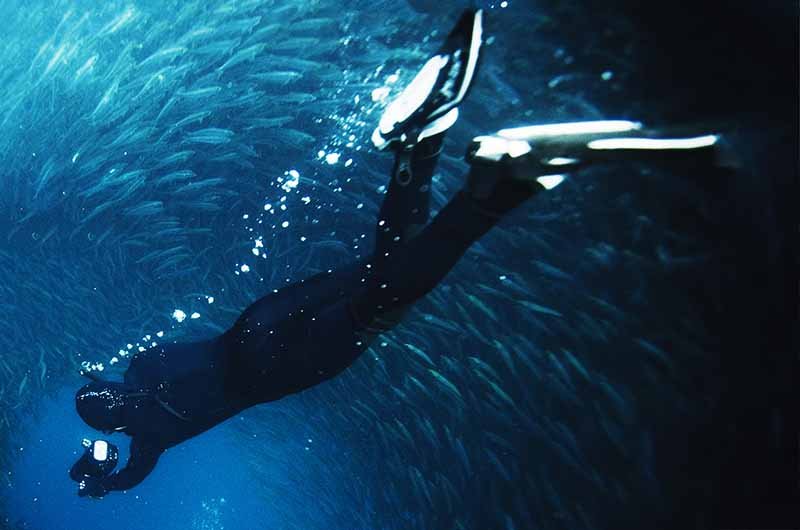
Sheico Group dominates the global neoprene wetsuit and watersports market with an estimated 65% share. By integrating material production, garment manufacturing, and client services, Sheico supplies most major surfing, diving, and outdoor brands.
Few manufacturers in any industry hold the kind of market dominance that Sheico Group has achieved in neoprene wetsuits. Founded in Taiwan China, Sheico expanded aggressively into Vietnam, Thailand, and Cambodia, building vertically integrated factories that produce not just neoprene fabric but also the finished wetsuits, rash guards, and performance gear.
The company’s success comes down to three strategic strengths:
- Vertical Integration: By producing both neoprene sheets and final apparel, Sheico controls cost, quality, and innovation. Clients like Billabong, Patagonia, and ScubaPro rely on this single-source efficiency.
- Global Production Footprint: Facilities across Asia give Sheico proximity to both raw material sources and export shipping hubs. This allows shorter lead times and stable production even during global supply chain disruptions.
- Brand Partnerships: Sheico doesn’t just manufacture; it co-develops products with leading brands. Patagonia’s wetsuits, for example, are made with Sheico’s help using plant-based Yulex rubber. This shows how Sheico adapts to sustainability demands.
However, Sheico’s sheer size can also be a limitation for smaller buyers. Its MOQs are high, and its focus is often on servicing billion-dollar brands rather than startups or niche players. For B2B clients seeking smaller runs or unique neoprene accessories (bags, koozies, protective covers), a specialized OEM factory like Szoneier may be more responsive and flexible.
In short, Sheico dominates by scale and vertical integration—but alternative suppliers fill critical gaps in customization and customer service.
Which Manufacturers are Most Reputable in Western Markets?
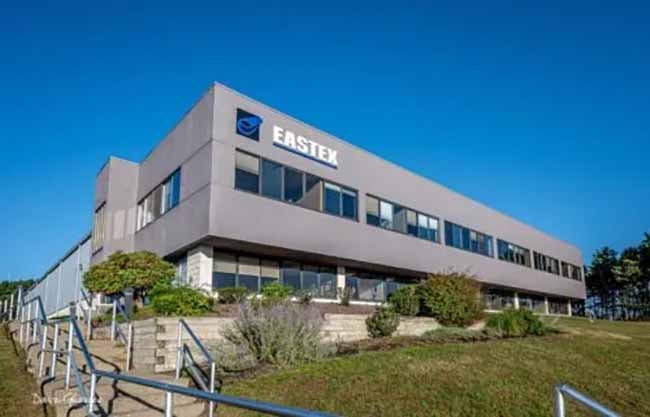
In the U.S. and Europe, reputable neoprene manufacturers include Eastex Products, West American Rubber, Macro International, BRP Manufacturing, Techneopro (UK), and EKI BV (Netherlands). They serve medical, automotive, industrial, and lifestyle markets with high-quality neoprene sheets and composites.
Western neoprene manufacturers often specialize in high-value or niche applications where precision, compliance, and local supply chains matter.
- Eastex Products (USA): Known for laminated neoprene fabrics used in sports braces, orthopedic supports, and protective gear. Their laminating technology ensures durability and comfort.
- West American Rubber (USA): Specializes in industrial-grade neoprene rolls and sheets, serving aerospace and automotive clients.
- Macro International (USA): Supplies neoprene composites for military, safety, and performance products.
- BRP Manufacturing (USA): A long-standing player in industrial neoprene gaskets and seals.
- Techneopro (UK): Expert in sponge neoprene, often catering to European diving and outdoor brands.
- EKI BV (Netherlands): Flexible supplier for neoprene sheets in small batches—ideal for SMEs and startups.
Western buyers often choose local suppliers to avoid import delays, ensure compliance with EU/US safety standards, and secure specialized formulations. However, their cost base is higher compared to Asian factories. For brands that need scalable, cost-effective OEM solutions like neoprene fashion accessories, covers, and consumer goods, sourcing from Asia—especially a flexible factory like Szoneier—provides better pricing without compromising quality.
Are There Specialized Neoprene Manufacturers in Europe or Niche Segments?
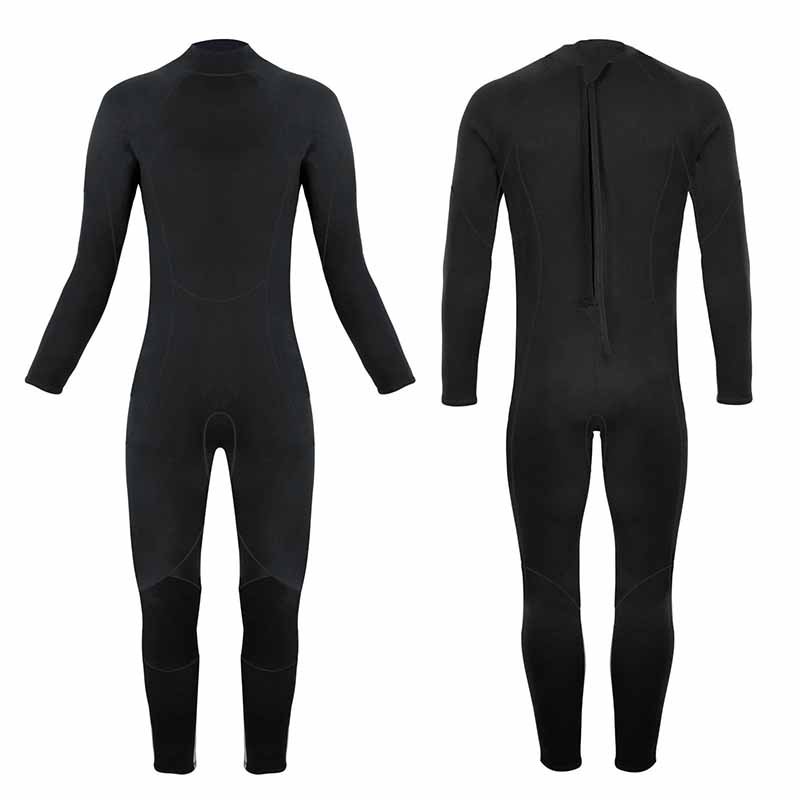
Yes. Companies like Techneopro (UK) and EKI BV (Netherlands) focus on sponge neoprene and flexible custom orders. They serve niche European markets, from wetsuit materials to medical components, and are valued for technical expertise and small-batch production.
Europe has a long history of precision manufacturing, and neoprene is no exception. While global giants like Sheico dominate volume markets, European specialists thrive by focusing on quality, technical expertise, and customization.
- Techneopro (UK): This company focuses almost exclusively on sponge neoprene, offering tailored thicknesses, densities, and finishes for sportswear and industrial use. Its competitive advantage lies in deep material knowledge and close collaboration with clients.
- EKI BV (Netherlands): EKI is known for supplying neoprene sheets in smaller, flexible MOQs. This makes it attractive for SMEs or design houses that don’t need massive quantities but value European compliance and responsiveness.
Such niche players prove essential for innovation. For instance, medical-device makers in Germany may turn to EKI for high-quality neoprene padding, while a British diving accessories brand may rely on Techneopro’s sponge neoprene for cold-water conditions.
That said, European manufacturing costs are generally higher, limiting their competitiveness in high-volume categories like consumer bags, covers, or promotional koozies. For bulk OEM orders with cost-sensitive margins, brands usually look to China’s Szoneier or Taiwan’s Sheico. European specialists are excellent for prototype development and high-end markets, while Asian factories excel at scalability and affordability.
Do Consumer Forums and Industry Experts Favor any Manufacturers for Performance?
Yes. On forums like Reddit, surfers note that Sheico supplies most wetsuit brands and praise its consistency, while niche experts highlight Heiwa (Japan) and Yamamoto (Japan) for premium high-performance neoprene used in triathlon and diving wetsuits.
Industry perception matters as much as production data. On surfing and diving forums, Sheico is often mentioned as the “hidden giant” behind most wetsuit brands. Many surfers are surprised to learn that Billabong, Quiksilver, and Patagonia wetsuits all come from the same OEM.
At the high-performance end, Japanese suppliers like Heiwa and Yamamoto are highly respected. Yamamoto’s limestone-based neoprene is considered the gold standard for triathlon wetsuits because it is ultra-light, hydrophobic, and insulating. Heiwa, though less well-known, is often praised in niche communities as “the best neoprene nobody talks about.”
These insights show that “best” is not a universal label—it depends on market segment:
- Mass-market surf & dive gear: Sheico (Asia)
- High-performance triathlon & diving: Yamamoto, Heiwa (Japan)
- Custom bags, accessories, koozies, covers: Szoneier (China)
This segmentation reinforces the importance of defining what “best” means for your product. Are you optimizing for performance, brand prestige, or scalable customization?
How Should Buyers Compare and Select Among These Top Manufacturers?
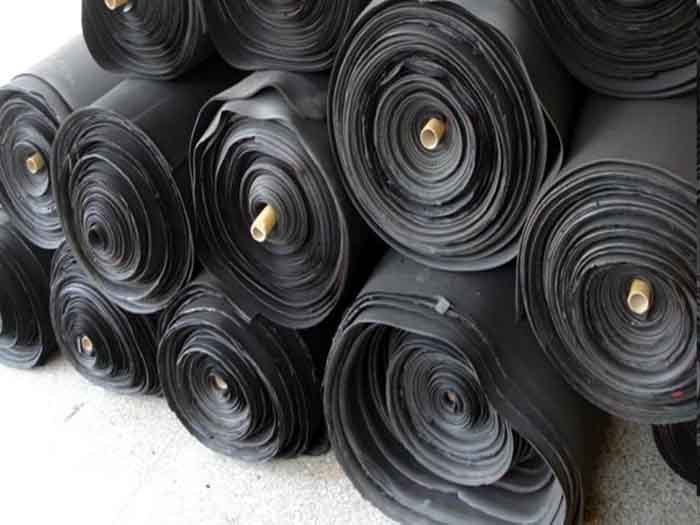
Buyers should compare manufacturers by product quality, MOQ flexibility, lead times, customization services, sustainability, and geographic advantage. The right choice depends on whether you need raw material, mass-market production, or customized OEM solutions.
Selecting the right neoprene manufacturer isn’t about finding a “one-size-fits-all” solution. Instead, it’s about aligning your brand’s needs with the manufacturer’s strengths.
Evaluation Criteria:
| Criteria | Questions to Ask | Why It Matters |
|---|---|---|
| Quality & Certifications | Do you hold ISO, OEKO-TEX, or other certifications? | Ensures consistency and compliance |
| Customization | Can you do OEM/ODM, logos, custom colors? | Differentiates your brand |
| MOQ | What’s your minimum order quantity? | Key for startups & mid-size brands |
| Lead Times | How fast can you deliver samples and mass orders? | Impacts product launches |
| Sustainability | Do you offer eco-neoprene? | Meets consumer demand |
| Location | Where are your factories? | Affects logistics & tariffs |
Comparison:
- Sheico: Best for big brands needing large-scale wetsuits.
- Denka/Zenith/BGK: Best for raw material sourcing.
- Western firms (Eastex, Macro, Phelps): Best for industrial/medical applications.
- European specialists (Techneopro, EKI): Best for small runs with compliance needs.
- Szoneier (China): Best for flexible OEM/ODM, low MOQ, fast sampling, and diverse neoprene products (bags, covers, koozies, wetsuits).
The best decision balances cost, scale, and customization.
Is There a Growing Trend Toward Sustainable Neoprene Alternatives Among Top Suppliers?
Yes. Leading brands and manufacturers are moving toward eco-friendly alternatives such as limestone neoprene, plant-based Yulex®, and recycled rubber. Factories like Sheico and Szoneier are adapting to sustainability demands by offering greener options.
Sustainability is one of the fastest-growing topics in the neoprene industry. Traditional chloroprene production has been criticized for its carbon footprint and health risks, especially around chemical plants. As consumers demand greener products, manufacturers have been forced to innovate.
- Limestone Neoprene: Used by Yamamoto (Japan) and adopted by brands like Xcel. It offers lower environmental impact than petroleum-based neoprene.
- Plant-Based Yulex®: Developed as a renewable alternative, now featured in Patagonia wetsuits manufactured by Sheico.
- Recycling Initiatives: European brands like Finisterre have launched wetsuit recycling programs, while Rip Curl runs a wetsuit recycling initiative in Australia.
- Water-Based Adhesives: Companies like Matuse (USA) use water-based glues and recycled materials to cut VOC emissions.
For buyers, the trend is clear: eco-friendly materials are not just marketing—they are fast becoming industry standards. Working with a forward-looking factory like Szoneier, which can offer sustainable material sourcing for bags and accessories, ensures that your brand stays relevant to eco-conscious consumers.
Conclusion: Why Choose Szoneier as Your OEM/ODM Partner
After analyzing the 10 best neoprene manufacturers, it’s clear that each serves a unique niche—whether it’s Sheico’s dominance in wetsuits, Denka’s raw material leadership, or EKI’s European small-batch expertise. But for brands that need flexibility, customization, and reliability across multiple neoprene product categories, Szoneier stands out.
- ✅ 18+ years of experience in neoprene R&D and production
- ✅ Wide product range: bags, koozies, gloves, covers, wetsuits, and more
- ✅ OEM/ODM services: private label, logo printing, custom colors & designs
- ✅ Low MOQ to support startups and SMEs
- ✅ Free design & samples, fast prototyping
- ✅ 100% quality guarantee & on-time delivery
Whether you’re a small brand testing new neoprene products or a high-end company needing private-label solutions, Szoneier offers the expertise, flexibility, and customer-first approach that makes us the best choice.
Contact Szoneier today to discuss your project and get a free sample or custom quote.

